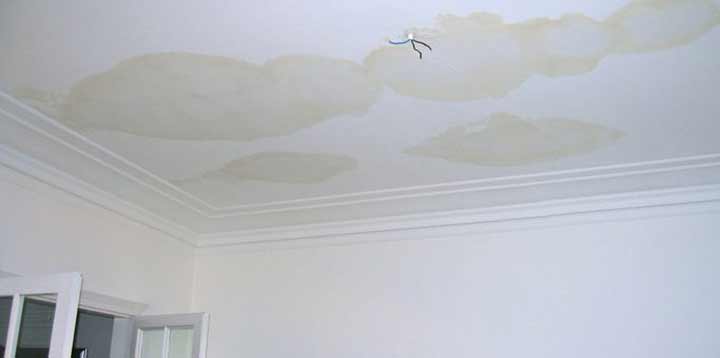
The plumbing system in your home should be considered a modern day miracle. Think about it for a moment. What would your life be like without a system that efficiently delivers water to every part of your home? You would quickly revert to the old ways of drawing water from a well and hauling it into your home. Imagine having to do that in the dead of winter?
But just as the plumbing in your home can be a blessing when it works properly, American Dream Realty & Management says, the plumbing can also be a curse if it goes wrong. That is because water is highly mobile and will not always restrict itself to the path you have created for it. If there is an accidental opening in any part of your plumbing system, the water inside your pipes will find its way out.
But the trouble is you will not always know when this has happened. The plumbing in an average home has hundreds of feet of piping hidden behind walls, floors, and ceilings. Since plumbing pipes are often hidden from view, it is hard to tell when there is a leak in one of them. That is until water starts to damage the structures of your building.
Is there a way to know when there is a leak in your home’s plumbing systems? Can you detect leaks in pipes that are out of sight before those leaks cause massive damage to your home’s walls, floors, and ceiling? The answer is yes, you can!
In this post, we explain all the signs you will see in your home if there is a hidden leak in your plumbing.
Signs that you have a hidden leak
Here are things to look for if you suspect there is a leak in your plumbing but are not quite sure:
Higher water bills
The first sign of a hidden leak in your plumbing is a sudden spike in your water bill. Never underestimate the impact a single dripping faucet or pipe joint can have on your water bill. Even if it is dripping at the rate of one small drop per second, that tiny leak will spill enough water to reflect in your water bill.
If your water bill has recently increased, but you have not changed your habits, you might want to check your plumbing for possible leaks.
Low water pressure
The correct water pressure is essential for properly functioning your home’s plumbing. Imagine the frustration of trying to shower when the water pressure is low. A leak in one of your pipes will siphon pressure from the system and cause the overall water pressure for the home to dip.
Three things can affect the water pressure in your home: the water pressure from the municipal water supply, the design of your home’s plumbing system, and a leak in the plumbing. If you have recently started to experience low water pressure, you may have a leak in your plumbing.
Dampness, mold, and mold odor
Leaks inside the walls or floors of your home do not always reveal themselves as water puddles or moisture from the affected parts of the house. In place of this obvious sign, you may find that certain surfaces are always damp.
In addition to dampness, you may also notice mold and mildew on those surfaces. Water, along with the growth of mold and mildew, can happen out of sight, depending on where the leak is located. In such cases, the smell of mold will often betray what is happening in that part of the house.
Damaged walls and ceilings
A common sign of hidden leaks is peeling or bubbly paint. If you see blisters or peels in the paintwork on any surface, a leak could be lurking behind the surface. The smell of decaying wood is another sign that water is attacking the internal structures of your building. Water leaks inside your walls will also weaken drywall. If drywall is soft, it is usually because of water or moisture. A damaged carpet is another sign of a water leak in your home.
Strange water meter behavior
To check if there is a hidden leak in your home, do this. Turn off all faucets and water-utilizing appliances. Go to your water meter and look at the face of the meter. You should see a dial, counter, and tiny gear-like wheel; these should not be moving when no water is flowing in your home. Take note of the positions of the dial, counter, and wheel, and wait 30-60 seconds. If the position of any of these changes within that time, you have a hidden leak inside your home. The next step is to find the location of the leak in your home. If you are unable to find the leak on your own, there are services to help find hidden leaks in your home.